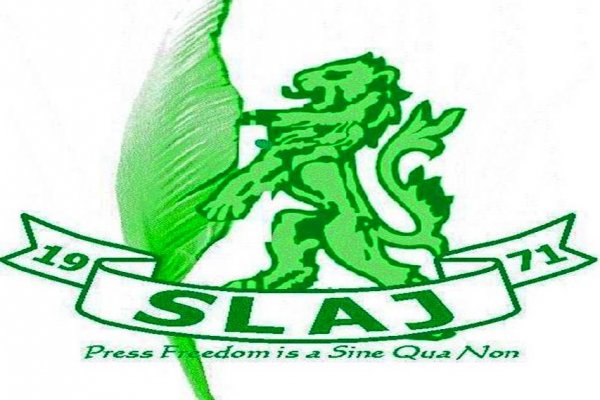As the review of the 1991 constitution gathers momentum, media practitioners in Sierra Leone has on Thursday 6th August, submitted a position paper to the Constitutional Review Committee (CRC), with calls for a separate chapter in the new constitution to clearly outline the role and functions of the media in the country.
Making statement at the submission ceremony, held at the CRC Secretariat, Miatta Conference Hall, Youyi Building, in Freetown, chairman of the Media Reform Coordinating Group, Ransford S.C. Wright said the media in Sierra Leone have come a long way over the years amid numerous challenges, albeit with some positives.
He recalled that during the civil war, when the sovereignty of the nation was being threatened, the media played a significant role in the restoration of democracy and peace which the nation is now enjoying.
Mr. Wright said dedicated journalists risked their lives during those dark days, with some dying in the line of duty to ensure that citizens were well informed. He recalled the significant role of the media in past presidential and parliamentary elections which were highly acclaimed both locally and internationally as peaceful.
The chairman of the Media Reform Coordinating Group said the media have played a major role in the fight against the Ebola virus disease, adding that without the robust intervention of the media the fight to reach zero Ebola case would have been more challenging.
“When the media operate in a professional manner society benefits from its usefulness; if it is abused society feels the pain. That is the reason why the Media Reform Coordinating Group is collectively working to drive the reform process locally to support the work of the various entities within the media sector. We have committed ourselves to promote professionalism within the media landscape. With the right laws and a conducive environment Sierra Leone will definitely prosper,” he said.
He said challenges in the media landscape include recklessness exhibited by some journalists, which has cost some well-meaning citizens their reputation, adding that the reform group was seriously concerned about that, and that the Sierra Leone Association of Journalist (SLAJ) has set up a disciplinary committee and developed codes to address ethical excesses of its members.
He said Sierra Leone, as a post-conflict country, has made significant gains over the years and was recently recognised as one of the African countries democracy has taken root. Thus, he underscored that the ongoing constitutional review process accords an opportunity for Sierra Leone to uphold that reputation by ensuring that the people get the constitution that will serve the good of all.
Presenting the document to the CRC chairman, president of SLAJ Kelvin Lewis said the document represents the views of the media in Sierra Leone and that members want a chapter dedicated to their profession in the new constitution.
Lewis said the document basically seeks freedom of the press and the recognition and guarantee of freedom of information in the new constitution to ensure citizens right to their opinion. He acknowledged that a lot of people are not happy with the way social media operate in the country, adding that an expert has been hired by the Independent Media Commission (IMC) to help address the issue.
He said their position paper includes a provision that the president should not appoint commissioners of the IMC, instead journalists should recommend nominees to be appointed as commissioners.
Responding, Chairman of the CRC, Justice Edmond Cowan said when President Ernest Bai Koroma was launching the CRC one of the things noted was that the committee should work with the people because the document belongs to them.
He said they have been doing just that, going around the country to engage the people on what should be in the new constitution, adding that they are encouraging organisations to come forward with their recommendations that will help the country have a good constitution.
He said the media was playing a great role in the review process as without them the committee would have encountered challenges in the review process. He promised they would do all in their power to do justice to the document presented by the media.











